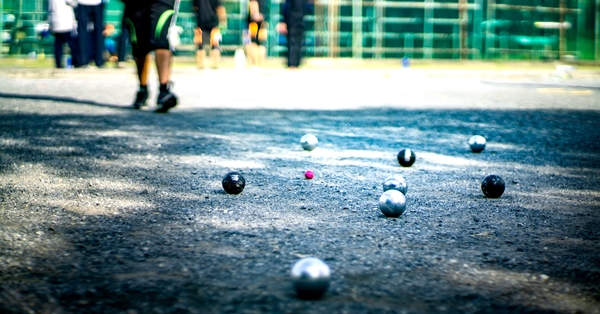
Petanque is one of the most popular sports in France. The reason lies in the simplicity of the rules. Playing this game does not require a lot of equipment like in other sports.
This is a boules game derived from the Provençal game. It is the eleventh sport in France by the number of licensees. There are many national federations affiliated with the international federation.
At the end of 2017, there were nearly 600,000 licensees in one hundred countries, from Morocco to Vietnam. Also, there are many occasional practitioners, especially on vacation. It is a mainly male sport (less than 15% of licensees are women in France, and the game attracts fewer women). Nevertheless, it is one of the few sports where mixed competitions are held.
The evolution of the game
Originally, petanque balls were made of clay. Later, they were made of stone, and wood too. The last and modern variant of pétanque balls is made of steel. Even the steel used has seen some improvements.
Today, stainless and carbon steel is used to manufacture petanque balls. But real pétanque was born in 1910 during the first official pétanque competition in La Ciotat. Since that time, the championships of professionals and amateurs in this game have multiplied in France.
Among the most famous names is the champion Zvonko Radnic. He won several titles in France, at the European level, and also a title at the world level.
This ball game brings together millions of people, professionals, and amateurs alike. Even if the proportion of playing women is low (barely 15% in France), it is a game in which the gender of the players in no way determines the outcome of the clashes.

A simple and friendly game
Petanque is often associated with many clichés. A sport for the elderly, a cheesy activity practiced by gruff men, a sexist environment where women are absent…
Today petanque, like gardening, involves an expenditure of energy and solicits different muscles. Both allow you to work on endurance, flexibility, and muscle building.
Both pétanque and gardening are gentle sports that can therefore be practiced at any age. So we are not surprised to see 3-year-old and 94-year-old “petanqueurs”.
It is a popular sport in particular because it is accessible to all, without health contraindications, financially accessible, and above all user-friendly.
We could also compare petanque to sports like golf or chess. These are sports with little physical effort that still require technical and tactical preparation.
Today no one could contradict the fact that our professional level pétanque champions have all the following qualities: skill, concentration, flexibility, endurance, stress management, self-confidence, and attitude.
However, the French are the most successful in international competition. Philippe Quintais, nicknamed the Zidane of pétanque and a member of the French Dream Team (with Philippe Suchaud and Henri Lacroix), won 12 French championships, 13 world championships, and 12 world championships in Millau in particular.
Are there any competitions on petanque?
The Mondial La Marseillaise à pétanque is the biggest world competition on this discipline. It welcomes 50,000 spectators on the first day, and more than 150,000 for the whole competition. It is held in Marseille at Parc Borely and on a field network throughout the city.
The final games are usually played on the Old Port. Since 2017, the final has taken place on the forecourt of the MUCEM. There a stadium with more than 3,000 seats is set up for the occasion.
The discipline always dreams of growing, developing the spirit of performance, and installing a culture of training.
Since 2016, the French Federation of Petanque and Provencal Games (FFPJP) has brought together nearly 300,000 members (including 16% women), which makes it the first federation in the world in this sport. By way of comparison, the French Football Federation has 2.2 million licensees.
The L’Équipe channel participated in this boom, offering greater visibility to players by broadcasting a few competitions such as the L’Équipe trophy or the Coupe de France.
Despite these efforts, the governing bodies of pétanque have not succeeded in having the sport included in the Olympic Games.
